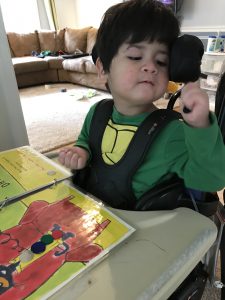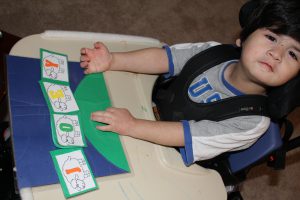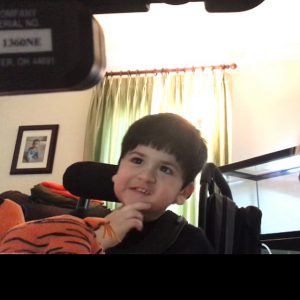In college, I took a computer programming class. It did not go well. Luckily, the professor was from another era and did not believe girls should be in the computer science field. (The college was only fifteen years into admitting women, and there were still some professors who did not agree with the change in enrollment policy. It’s hard to believe in 2017, but it is true.) The professor had no problem “helping” us during office hours, but because he did not believe us girls could actually complete computer programming, he’d ask a question and then immediately complete the work himself, not giving us enough wait time to stutter through an answer. No surprise, I did not learn any computer programming in that class. The professor assumed I couldn’t do it, and instead of even trying to teach me, he let me slide. Now, I was a college junior and was using Computer Science to replace the Calculus 2 requirement, so I was not going to make too much of a fuss about not learning to program. I regret my effort now. [Read more…]
Honoring Intent – Presuming Competency Part 2 of 3
 This is part 2 in a 3 part series on presuming competency.
This is part 2 in a 3 part series on presuming competency.
Joey looked at me, then the floor, and finally back to his eye gaze AAC device. He said “Off. Over. White” on his eye gaze twice, then looked at the floor again. Finally, he said “down” on the eye gaze device. I looked down, and realized that the red maraca with a white top had rolled under my chair and I hadn’t seen it when I first followed his gaze toward the floor. Although off over white down seemed to be a random string of words, I started to suspect that what he was telling me was the maraca fell off the tray. The white is over the red on the maraca, and it was down on the floor. When I handed Joey the maraca, his grin told me that it was exactly what he wanted. [Read more…]
Presuming Competency – Why is it important?
 This is the first in a series of posts on the importance of presuming competency, and strategies to help us.
This is the first in a series of posts on the importance of presuming competency, and strategies to help us.
If you want to see Joey’s smile, the first step is to look him directly in the eyes and talk to him in a voice you would use with any three-year-old. Next, ask him questions that require a response, and pause to let him attempt to answer. Nod at his answer, and then pause, waiting for him to see if he will expand on that idea by pointing, gesturing, or by glancing somewhere else in the room. Don’t talk to his parents about him in front of him. Talk directly to him. Presume his competence, even if he does not jump at the occasion to engage, or if he looks uninterested in your words that day. [Read more…]
Looking past behavior: The War on Want Part 2.
 I woke up around 6:30 last Sunday morning, thinking about Joey and the word want. It has been weeks now, and Joey and I continue to fight our War on Want . It is perplexing for all of us who work with him, because he is so quick to use his eye gaze system to answer questions about a book, label objects in his environment, or to tell us how he feels. But using it to make a request seems to be difficult for him. Even using his eye gaze to confirm what he wants using the yes/no buttons can become a fight. [Read more…]
I woke up around 6:30 last Sunday morning, thinking about Joey and the word want. It has been weeks now, and Joey and I continue to fight our War on Want . It is perplexing for all of us who work with him, because he is so quick to use his eye gaze system to answer questions about a book, label objects in his environment, or to tell us how he feels. But using it to make a request seems to be difficult for him. Even using his eye gaze to confirm what he wants using the yes/no buttons can become a fight. [Read more…]
Play, Asking Questions, and Searching for Answers
F or those of you who have been following this blog, you know that it is intended to capture Joey’s journey as we watch him develop and learn. Yet in many ways, this blog is documenting my own journey as his teacher as well. As I watch Joey learn and quickly grasp onto new tasks, I find myself asking many questions along the way about how best to apply what I already know about teaching children with disabilities and child development to Joey and his unique needs. [Read more…]
or those of you who have been following this blog, you know that it is intended to capture Joey’s journey as we watch him develop and learn. Yet in many ways, this blog is documenting my own journey as his teacher as well. As I watch Joey learn and quickly grasp onto new tasks, I find myself asking many questions along the way about how best to apply what I already know about teaching children with disabilities and child development to Joey and his unique needs. [Read more…]
- « Previous Page
- 1
- …
- 31
- 32
- 33
- 34
- 35
- …
- 38
- Next Page »


